Charles Pakana (Victorian Aboriginal News):
As a growing number of Australians finally recognized the true history of genocide in this country and all that it means. Specifically a concerted effort to eliminate every trace of peoples and culture that have existed on and in concert with this continent, there is a definite turning of the tide. Increasingly, the country is turning to those few Aboriginal people who hold onto and seek to build cultural knowledge. In Melbourne and its surrounding suburbs that exist on the traditional lands of the Wurundjeri Woi Wurrung, one of the most well-known and respected of those knowledge holders is Uncle Bill Nicholson and he joins me today. Uncle Bill, thanks for your time.
Uncle Bill Nicholson:
Thank you Uncle Charles for coming to xxxxx, our new classroom, which translates to ancestral guidance.
Charles:
And we’ll definitely be talking about that in a short while. But over quite a few years and we were yarning about this just before we started the interview, I’ve had the opportunity to see and hear you quite a number of times, as you’ve sought to educate Aboriginal, and importantly, non-Aboriginal people about Wurundjeri Woi Wurrung culture and heritage. I’ve been with you as you’ve sat with school children and talked about flora and fauna, I’ve been in an audience of several hundred to hear you talk about traditional family and community structures, and I’ve witnessed goodness knows how many welcomes to country, during which you’ve explained in detail, in incredible detail, the significance of the specific area of country on which we may have been standing. What drives you to be the educator, essentially the law man that you are today?
Uncle Bill:
On a daily basis, I call it the spirit of my ancestors. I really believe, and I know for a fact that my ancestors are stories, their knowledge, their understanding of our sacred land and environment was not respected in the past. And like you touched on earlier, that word genocide is a very powerful word, and the colonies’ attitude was pretty much that. The Aboriginal problem, the Aboriginal people are just in the way of the British colonial progress. And as I got to learn my people’s story in further detail, thanks to my father who gave me the opportunity back in the mid ’90s, I found that I come from some amazing, staunch, wise, and extremely resilient people. My elders passed and basically my family passed, who I totally acknowledge and respect.
And if they had a little bit more freedom back in those days, which obviously was restricted through racist attitudes, our people would be in a lot better situation today. So in the modern day, I guess I try and be as positive as I can be. And I believe that Australia as a peoples, as a country, as a community, does allow Aboriginal people to have a bit more of a voice about sharing who they are, and the pride within their own identity, and their ability to learn their connections to country more than my father’s generation. And the further you go back, the harder it was.
Charles:
But what drives you personally?
Uncle Bill:
To convey the voice of my ancestors that was disrespected. And that’s the voice of this land, it’s the culture of this land. And I’ve always believed that true reconciliation can only be based on the broader communities that live on Aboriginal land, feeling a pride within the cultures, the original cultures of the country that they live and work on. And that can’t happen unless there’s a voice from our own community, an educational voice. Our perspectives. We never wrote any history books. We are one of the oldest living cultures on the planet, and we’re well known as storytellers. So I guess in a modern way of saying that, I’ve tried to learn as much as I possibly can, to feel confident to get out there and share our perspectives on everything, pretty much.
Charles:
That’s really interesting, because when you talk about learning as much as you can, at an event several years ago, I saw you in real frustration at your own lack of knowledge in educating a large group. And this was in Preston at Darebin town hall. It was a large group of people and you were talking about traditional Wurundjeri family and community structure. And what’s always struck me is the memory of you explaining to the audience just how much of that knowledge, knowledge that had existed for tens of thousands of years, had now been lost in an almost blink of an eye. Let’s be really frank and blunt about this. How close have we come to what you could consider to be a brink of catastrophic knowledge loss?
Uncle Bill:
We were nearly wiped out. The knowledges that I am trying to seek, and I have been for closing on 30 years now… Because the word lost, I don’t personally use the word lost relating to cultural knowledge and language. Language to me is waiting to be rediscovered and reconnected by its people. And knowledge comes through experience and understanding. And even back when I was first starting to learn my people’s culture, as I’ve grown older, I might know the similar knowledge, but my perspectives on things grow as I become older. And my understandings, I believe, come in more in depth ways, which allows me to share a little bit more through that experience. In my understanding. In 1863 when Simon Wonga went over the Black Spur at the back of Hillsville there, and met with the remnant Taungurung people at a place called Mohican up on Taungurung country there, and they joined forces to then go back over the Black Spur road and set up Coranderrk.
I don’t believe there was more 50 people from both Wurundjeri and Taungurung at that time that were actually registered by the government census, I guess you could say, or the numbers that were counted in the history books. There may have been more people. I do know for a fact there were more people trying to hold onto a traditional lifestyle through oral history. But those numbers, we don’t know. But the remnant people, if they did not survive at that time, we wouldn’t even be here as a people ourselves. Wonga’s, I guess in today’s language, his cousin, Annie Borate, Barak’s sister, and we all come through her in a family line, and none of the men’s children survived. So the way I sort of describe it when I talk to people about knowledge, is most people get knowledge from reading a book or through their experiences or being taught. I sort of illustrated as if Wurundjeri culture was a 100-page document of everything the old people knew, the colonial invasion has torn out 90 pages of that, stood on it, and set it on fire.
That little remnant piece of information we have is what I go by. And I believe I’ve created a lot of success educating in this way, that I always tap into human nature and why people do things. I’ve seen discussions for example about the word Aboriginal and indigenous people. Which one’s the right one to use?
Charles:
Yeah, sure.
Uncle Bill:
To me, it’s always been that word people that’s the important part. Aboriginal or indigenous, yes, we do identify that way. I sort of say that Aboriginal the original, so I’m an Aboriginal man on my country. When I’m visiting or outside of my homelands, I’m an indigenous person to this continent. But it’s that human understanding which in the modern context helps people understand. And I get a lot of comments from non-indigenous people saying they appreciated the way that I conveyed information with that human… that I’m not sure what the word is, but the humanity connected to it. Because we’re all people and we can connect to why we do things. We can all connect to our own personal wants and needs and emotions, and all this sort of stuff.
Charles:
But what are those lost 90 pages?
Uncle Bill:
The lost 90 pages, I fill them in by thinking of what would I do with situations like this, knowing that the little pieces of cultural knowledge, and using those pieces of cultural knowledge to interpret it in the modern day, based on humanity and why people do things.
Charles:
So that’s like taking 10 pieces of a hundred piece jigsaw puzzle and trying to recreate the rest 90 pieces.
Uncle Bill:
Yeah. Yeah. Examples like Melbourne, Narrm, Wurundjeri country’s very well known for being a sporting community. So I relate traditional games and sports and how they were designed and utilized for our young children to learn fitness, teamwork, agility. Basically a lot of them were based on training for skills they needed later. And when you talk like that, people get it. They understand it.
Charles:
What gets me though, and let me challenge you a bit on this, is that you seem to be this eternal optimist. There rarely, if ever is any sign of frustration or angst. It’s just this, this is what we’re looking forward to in the future. What is it in Uncle Bill Nicholson that keeps that optimism going, despite having lost so much?
Uncle Bill:
In the very early days of being an educator, it wasn’t many examples, but a few of them that I remember, sort of watching other Aboriginal people do cultural awareness training or some sort of cultural training. If you convey your anger, your sadness, and guilt onto people that had nothing to do with the past, but do benefit from the past, that’s the lesson, but actually didn’t do anything in the past because they weren’t there, people shut down. And their own angst and their want to learn any more, becomes more restricted. So the way I try and teach people is to share responsibility from what you are learning. So I’m not putting the finger at you for what happened to my ancestors.
And I always say to people, anger and sadness are very close emotions. And when I talk about my history, I feel both. I’m not going to get up there ranting and raving how angry I am. But I do want to convey my emotions about how I feel about the past, and how I am conveying to people now that we become educated, we can no longer call ourselves ignorant anymore. And ignorance and fear is the basis of racism. So I’ve sort of had this personal joke with myself. Once you meet me, you can’t claim ignorance of the Wurundjeri country anymore, because I’m going to tell you as much as I’ve got time to tell you.
Charles:
Well, you made mention of the word ignorance, and that’s a perfect segue to the next question, and that is that ignorance and that lack of education with regard to Aboriginal culture, achievements, situation, and aspirations. Let’s be quite frank about it. It took quite a stand during the referendum of last year. And that was particularly evident with that shameful slogan that came forward, “If you don’t know, vote no.” And that was of course championed by some, shall we call them rather dubious plays in the political arena, such as the United Australia Party, Senator Ralph Babet, and its chairman, the ever-present Clive Palmer. Now as someone who’s committed to education, and let’s remove the referendum lens for a minute, what’s your response to that exploitation of ignorance as a political and social tool to hold back key social initiatives such as reconciliation and aspects of self-determination?
Uncle Bill:
So ignorance can be an excuse for not doing things. “I didn’t know that. So why should I act on it?” If I was to write a book on the history of the Australian education system, it was based on ignorance and basically white supremacy in the way that it’s conveyed through the white or European or early Australian white lens.
Charles:
This is the whitewashing you’re talking about.
Uncle Bill:
About. Yeah, whitewashing is probably a good word for it actually. Yeah. As most of us know, one of Australia’s most successful policies was a white Australia policy when it became federated as a country in 1901. And by 1940, 99% of the Australian population was considered white. The 1% that was there was the Aboriginal people. Because other cultures weren’t allowed into the country around that time. So I see that as a symbolism… Actually more than a symbolism. An actual reality of institutionalized racism within those political parties that want to have that same attitude of sweeping the past under the carpet and not feeling, I won’t use the word, guilty, like I said before, not feeling responsible to create change. Once people learn things, if you don’t know vote no, it’s just an easy cop out.
It’s basically saying you shouldn’t have to learn about the country you’re on, the Aboriginal history, culture, stories of the land. Forget about learning all that. Just don’t support something because you don’t know it. And I really believe part of human nature of all people is the fear of change, if you don’t know what that change is going to be…
Charles:
Yeah, for sure.
Uncle Bill:
… to you, your family, maybe your community, some people will think even larger than that. So I think it was sort of connecting to that fear as well. So if you don’t know what the change is going to be, just take the easy way out and say no to it and don’t support it.
Charles:
Well, the reality is though, fortunately, is that in light of the 2023 referendum outcome, more and more Australians, Aboriginal and non-Aboriginal, particularly non-Aboriginal people are asking the question, “Well, where to now? And what now?” For non-Aboriginal people, it’s a question of “How do I become an ally or a better ally?” And just as constantly, most are told that education and knowledge are fundamental to that progress. But from an educator’s perspective, where does education begin for these people who want to improve themselves?
Uncle Bill:
Well, the way I see it at the moment, and it is improving, but going very slowly, the reason it’s going very slowly is because… And look, I can’t speak on other Aboriginal community’s perspective, [inaudible 00:14:40].
Charles:
Well, we’re talking the Narrm area.
Uncle Bill:
Yeah, there’s not many educators. If you consider any subject as a teacher, anything you can think of, you will never write books or curriculum, or resources, or speak in front of people on a subject, if you’re not confident in that subject yourself. For instance, Wurundjeri culture being so heavily impacted by the colonial invasion, it’s not an easy subject to teach and feel confident in what you teach. It’s taken me many years to build confidence to speak in front of people, and now my roles kind of to revolve a little bit more into writing resources and curriculum moving forward, and bringing on some of the younger people to come on and do more of the presentations. And the history component is very emotional because it’s very hard to talk about bad things that happened to your family in the past every day. You’ve got to have a bit of a, what I call a strong spirit, like I said earlier from my ancestors, to be able to convey that. But we are moving forward. I don’t know whether this is correct saying this or not, but-
Charles:
It’s never held you back before.
Uncle Bill:
I don’t see a great deal of support of building that capacity from the government, educational departments, and so forth. I’d love to see what I call an army of educators. From our elders through to our middle age community, through our younger community. Having more opportunities to be able to connect to their story, and then the opportunities to get out there and do that. Wurundjeri education, we’ve got millions of people in our country. For about almost half a decade, I was doing it myself, and my sister Mandy was doing it outside of Wurundjeri in her own way, now brought on my younger cousin Rebecca, who does early learning. And to be honest, early learning is kicking a lot of goals. But again, there’s something like 2,000 early learning facilities on Wurundjeri country and I’ve got one early learning educator.
Charles:
Good lord.
Uncle Bill:
So-
Charles:
So, if you were to have the ear of the government right now, and an influential year of the government, what would you call on them to do right now?
Uncle Bill:
To create resources that when we can strategize on.. Well, they won’t be able to create resources until we meet and strategize things.
Charles:
Sure.
Uncle Bill:
Once that strategy is complete, then the resources are there to make these strategies work. So we need more people out there telling our story and empowering them to do it. You could read history books and read books written by non-indigenous people until the end of days, but you’re not going to get the Aboriginal perspective. And that’s one thing that we convey when people engage with us in education at Wurundjeri, is we are the only ones that can tell the local story. And I get a lot of really positive comments that people have done cultural awareness training in many different ways, and I encourage people to do it in many different ways, from many different people and perspectives, and the ways they do it. I say to them, “You will hopefully ground yourself on a deep level to the land that you live and work on by hearing it from us, the traditional owners of the land,” that I guess we have the responsibility to convey our story, keep our culture alive, support our community objectives, and be a voice on country.
Charles:
And that does bring us then to this Wurundjeri learning center where we’re sitting right now at Melbourne University. I’ve mentioned to you before, it’s this tiny little part of a huge colonial structure in the middle of Narrm. Tell us a bit about this and how it came about, and more importantly, what you want to see achieved here now, and in the future.
Uncle Bill:
I’ve got to give great credit to someone who works with me in magnificent support of the education department, Katrina Larkin, who was a great negotiator. I sort of come up with my wants and needs of how I see the education department. I’ve been basically talking to thin air for almost eight years. But now I’ve got someone listening who has the capability and expertise to make things happen. We’ve had a kind of relationship with Melbourne Uni here over the years. Done many ceremonies here. I’ve got a professional and friendship relationship with Barry Judd, who’s the senior indigenous person here at Melbourne University. I think his title is around the Vice Chancellor, Indigenous. So he has a lot of authority here and to build that relationship with him is very important for us. And we had a lady who, I apologize, I can’t remember her surname, but her name’s Kerry.
She was a great support from Melbourne University’s side. And she investigated one of those dreams that I had that Katrina conveyed to her, that we want a space, we want a classroom, we want our own place. Those negotiations happened and the floor of this building that we’re on now became the opportunity. I remember first walking in here and kind of an unusual sort of room. It sort of goes from a higher level around a bend into a lower level.
I’m sort of thinking, when people come here, I want them to see the culture straight away. So we have cultural displays, cultural items. Which is progressive too because it gives me another opportunity to create projects within Wurundjeri to get our people out there making stuff and displaying it. Which I’ve seen is very empowering for our mob. Especially our young men. I’ve seen so many positives in our young men going out to country, gathering resources and turning those resources into cultural items. It’s really positive projects that occur concerning our plans here and moving forward. There’s an area here where we want our own community to come and maybe just get away from the city around them for a little while, and come and be in a culturally safe place.
Charles:
So that’s an important focus for you, that it’s not just for the broader community.
Uncle Bill:
No, yeah.
Charles:
But this is for your own Wurundjeri community.
Uncle Bill:
It is. I encourage Aboriginal students here at Melbourne Uni, which I believe are in greater number than ever before. The area that we’re in now is the education space. I call that our campfire. Campfires have been people together for thousands of years, and this is where we bring people together to learn the Wurundjeri story. So there’s no one that I would say, you’re not welcome here. Everyone’s welcome here. But I feel like I sort of describe it as Wurundjeri has now dipped its toe into the water of Melbourne University, and the whole body’s coming soon.
Because the strategy here is this is for a couple of years. And I believe Melbourne University, I guess in the symbolism of paying the rent, is covering the expenses here for us for those couple of years. And we’ve got plans to even expand on this to create more of a cultural hub where I guess designed in two ways, a space for indigenous people to come when they come to Wurundjeri country, initially if they’re involved with Melbourne University, but generally once it gets more known, a place where they can come in a culturally safe environment to come and yarn and even hold ceremonies and things like that.
Charles:
But how do you see this impacting on the situation and the general education system, which as before we mentioned is very whitewashed? How do you see this place impacting there?
Uncle Bill:
Wurundjeri’s footprint here at Melbourne University is very important, in the fact that it’s one of the most well-known educational facilities in the country, if not the world. It’s very well known, Melbourne University. But now for the first time, the traditional owners have a voice and a presence here. And now that we’re here, negotiations moving forward can only grow from there. People have said to me, they didn’t even know it was here. And I said, well, people are welcome to come. And when they come there, I just watch them and they walk around looking at the cultural items. We’ve got Barak’s artwork on the walls, we’ve got the big Aboriginal Lives Matter poster here, which is a symbolism of the modern discussion around Aboriginal people’s treatment. We’ve got cloaks, possum skin cloaks with Barak artwork on it, and shields that have been recently made by some of our young fellas. Images of our ancestors on the wall. People are blown away when they come here. And this is a start.
Charles:
You mentioned the word start. Perfect. Would you consider this to be one of those aspects of a start point for non-Aboriginal people and Aboriginal peoples learning to improve themselves? Just going back to that previous question that I posed to you about, where do people start their education. Is this the sort of facility that you would put forward?
Uncle Bill:
Well, on the Wurundjeri perspective, yeah. You could do half a dozen cultural awareness trainings, but you won’t get that Wurundjeri perspective or you won’t start the Wurundjeri journey in connection anywhere else. So I believe that we might have recurring clients, for example, especially here in the urban environment. Many of them are either land and water managers or construction companies, to do with the cultural heritage legislation. But these are large businesses with a lot of employees, and they keep coming back with new employees and they’re all learning our story the same way.
And I believe it empowers them in the way that they think about either the way they manage the water and land, or develop our land. And it’s a starting point for relationship building. I’ve always had this sort of silly joke that if you want to have a good relationship, you’ve got to have strong communication. But one of the challenges that we’ve had is, for example, companies can have thousands of employees working for them, and we sort of cap our classes at 25, because any bigger, they get a little bit harder to do. So we’re now turning that face-to-face cultural awareness training into what we call E-modules, which are going to be online. Wurundjeri cultural awareness training, hopefully in the next couple of months will be available to the broader public, to get to more people.
Charles:
And we’ll definitely be providing full updates on that as we go forward. On the Victorian Aboriginal News website. Uncle Bill, we know you’re heading off on holiday, so I want to thank you for your time and wish you a very restful holiday, because you need it.
Uncle Bill:
Thank you. Thank you Uncle Charles, thank you for engaging with Wurundjeri. You do a lot of great work yourself, getting our voice out there. Not just Wurundjeri’s, but the Aboriginal community’s voice out there. Media can be a very powerful thing and it can be a very negative thing as well.
Charles:
Let’s not go there. We talked about this before.
Uncle Bill:
But you are a very positive aspect to our community, and this is a way to get our voice out to more people. So thanks for the interview.
Charles:
Respect. Thanks…


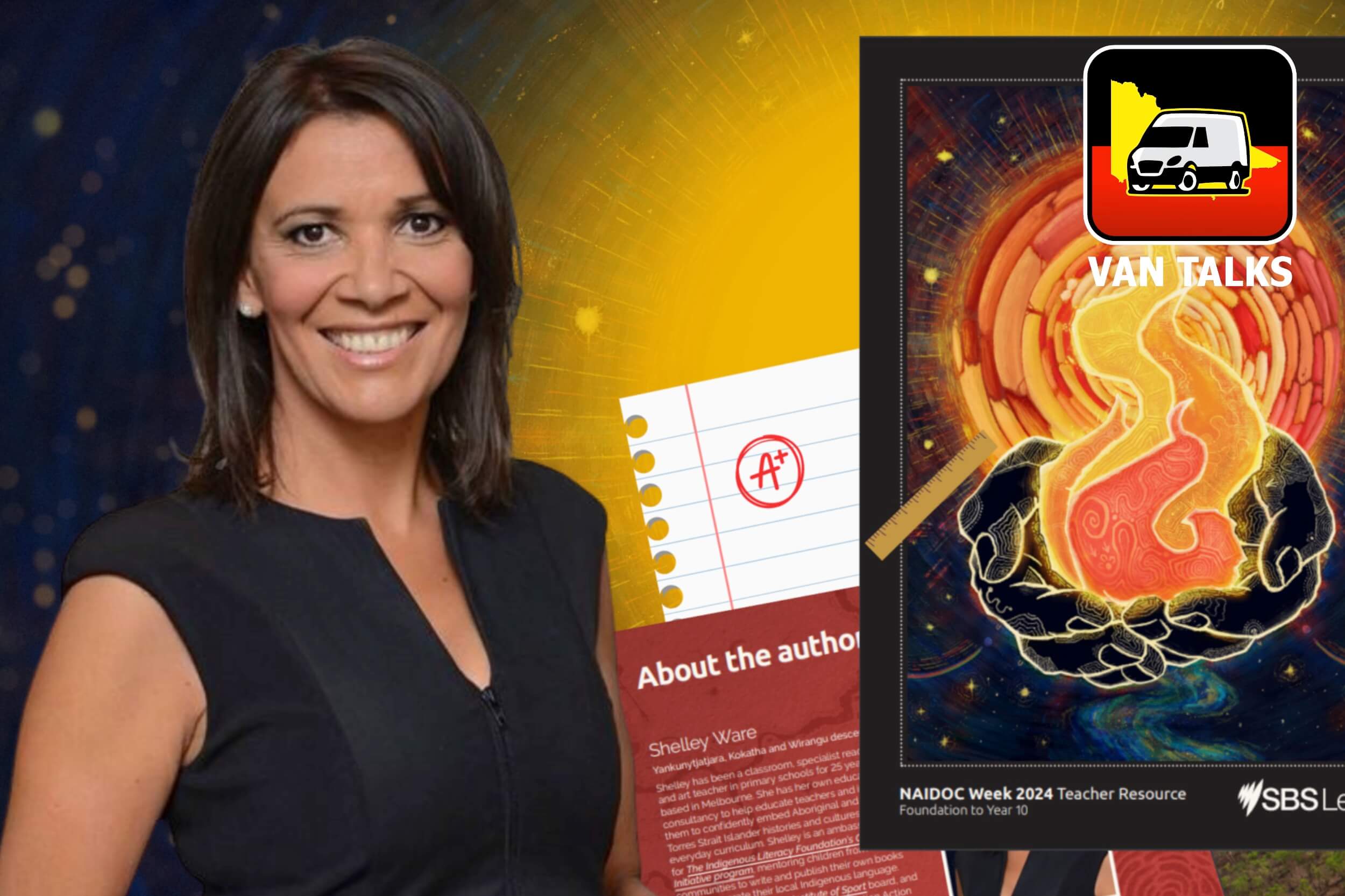
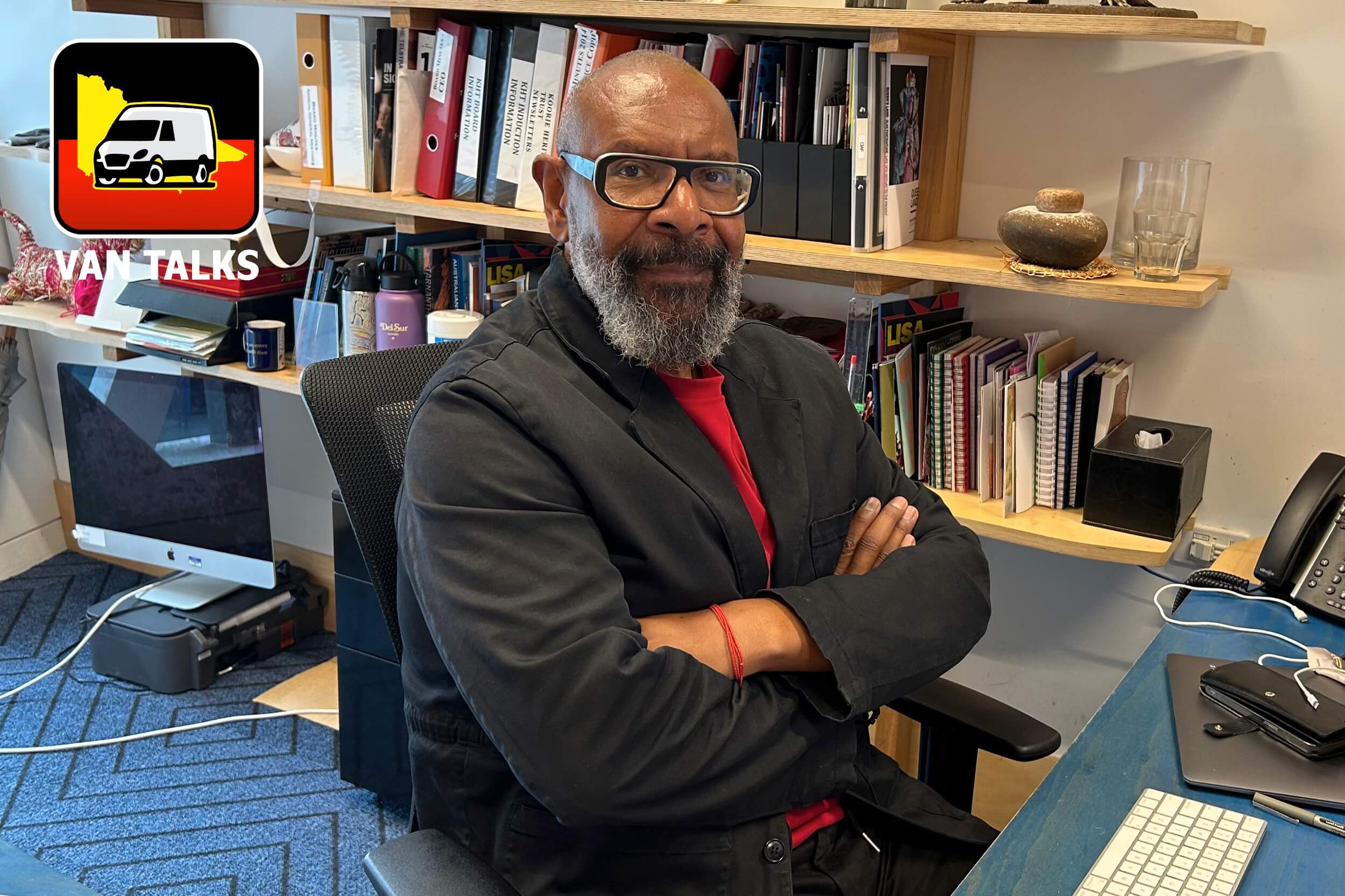
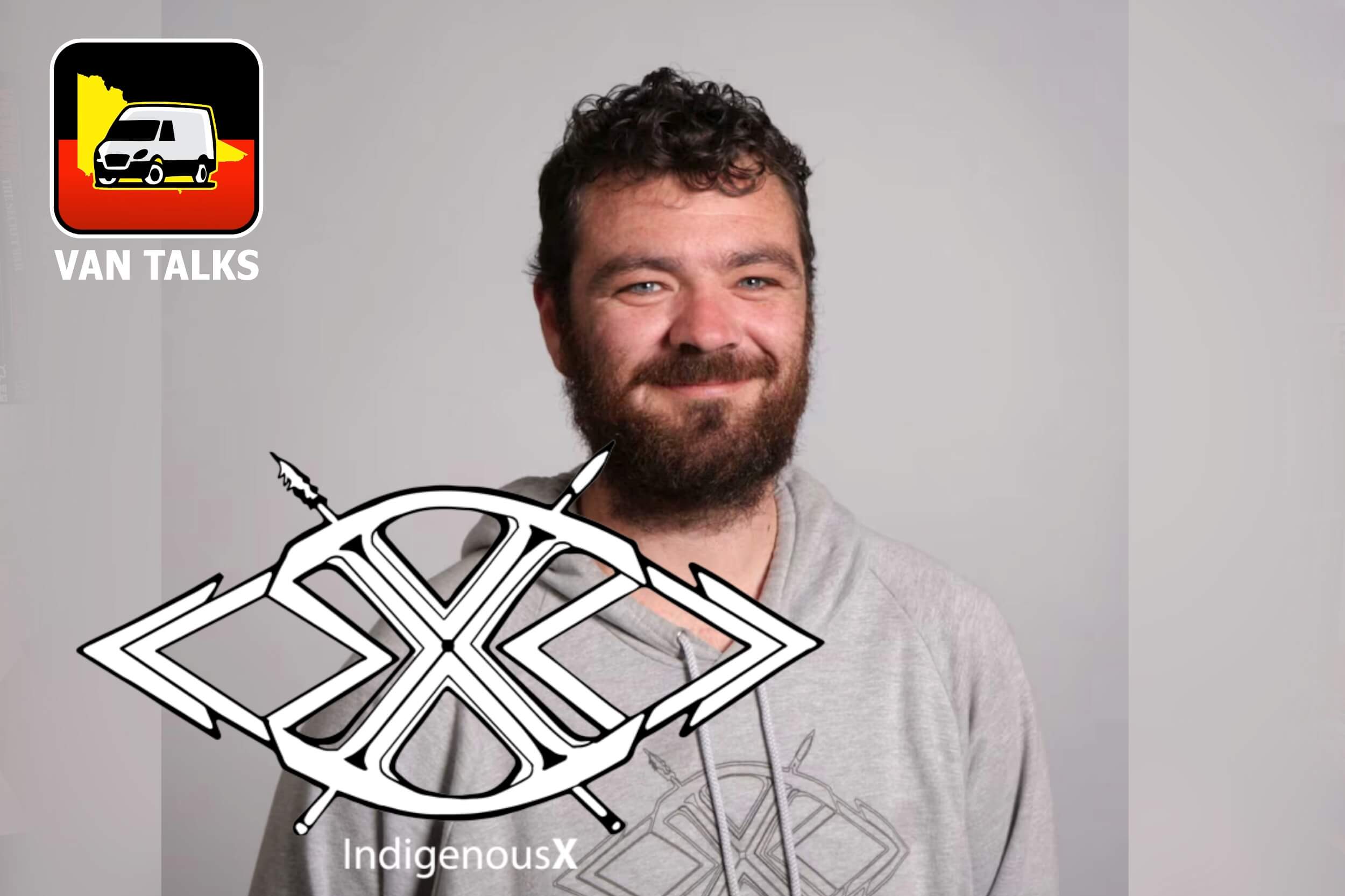
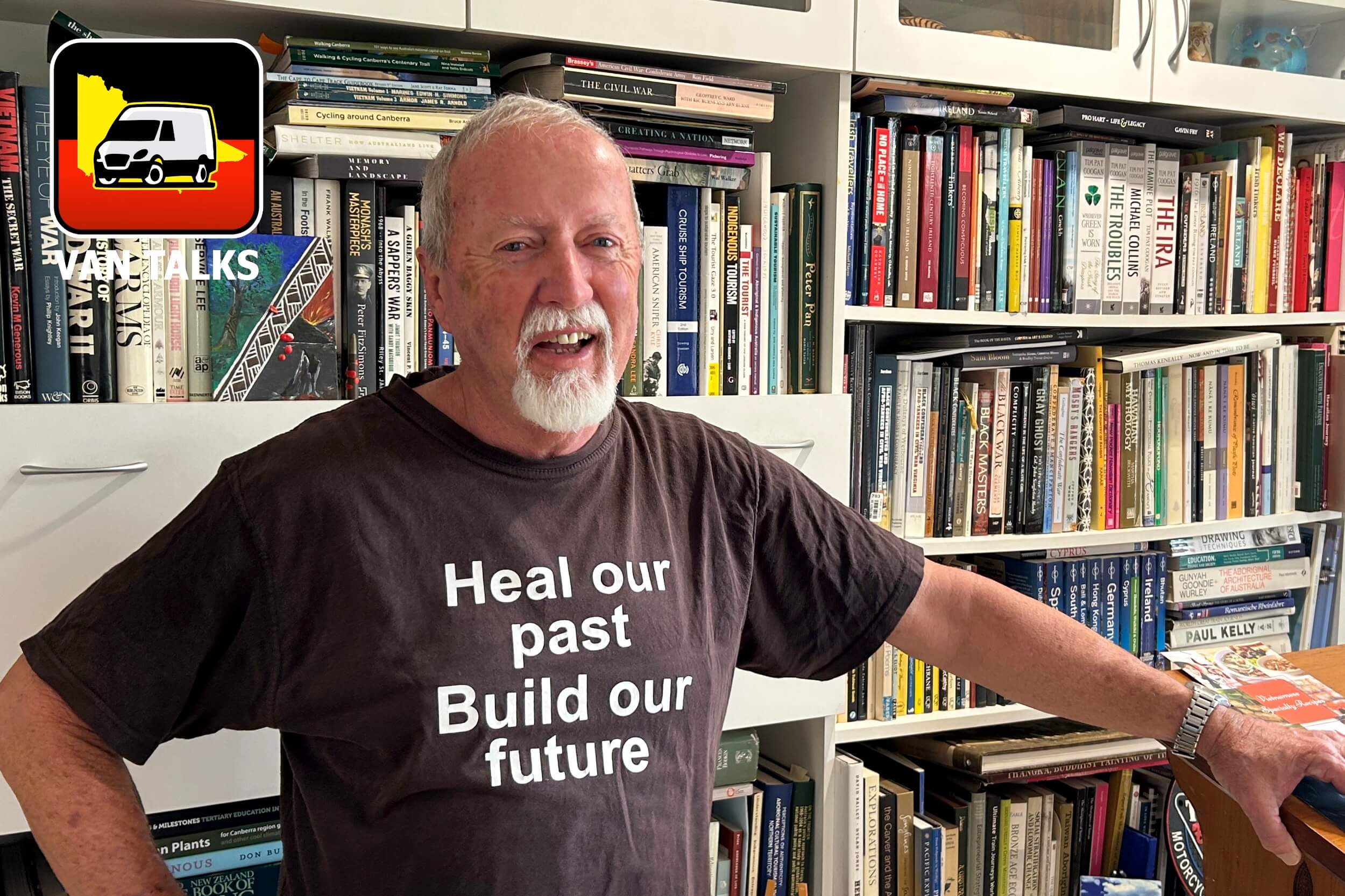
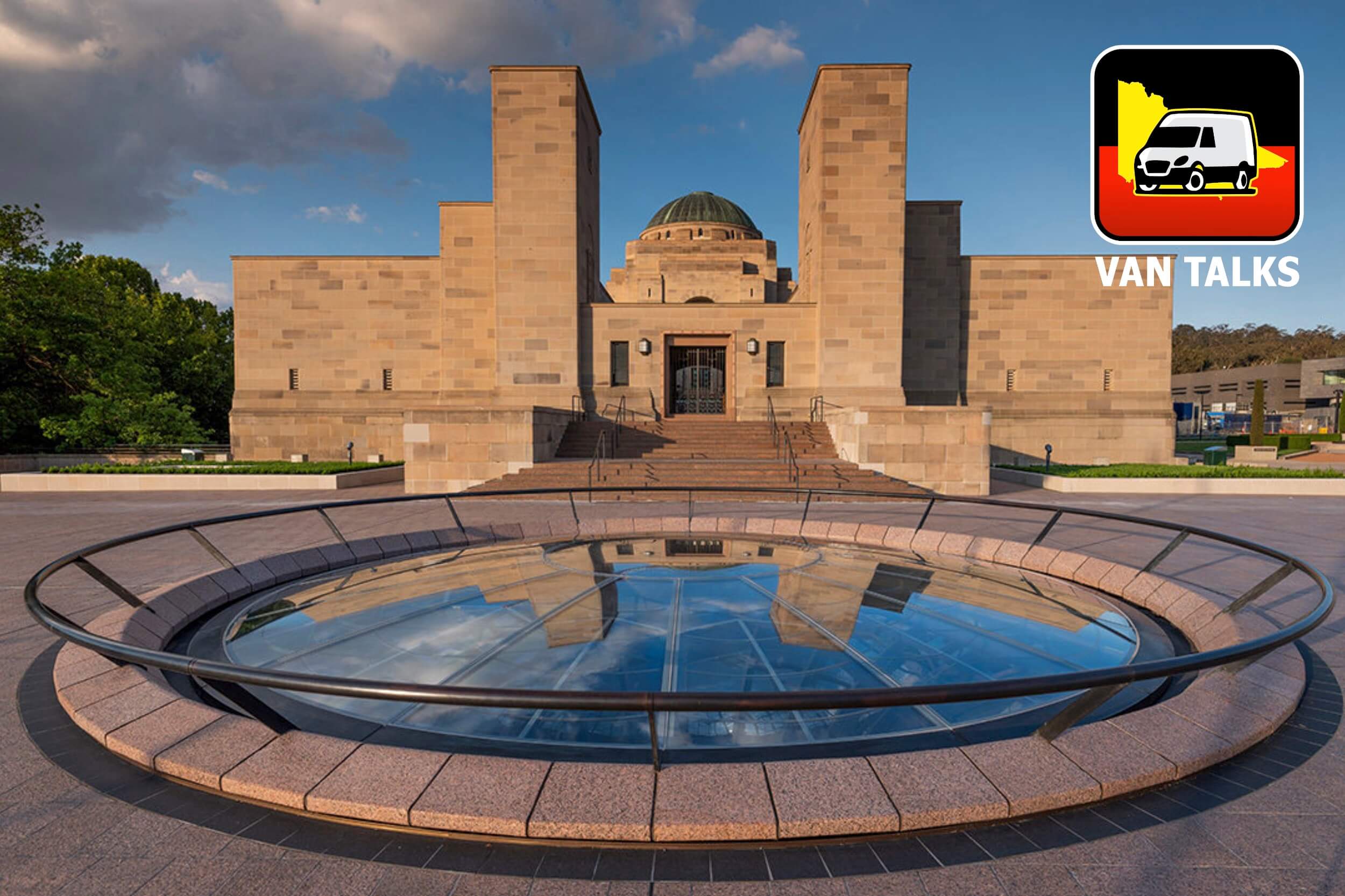

0 Comments